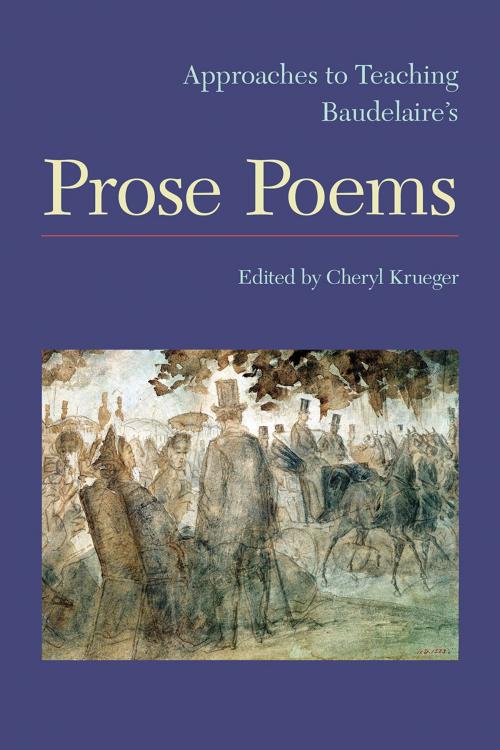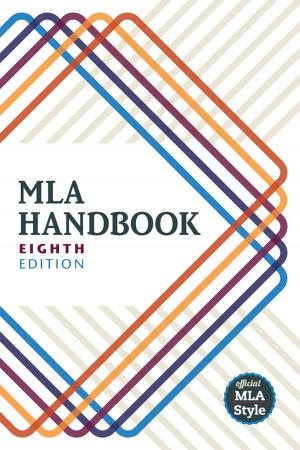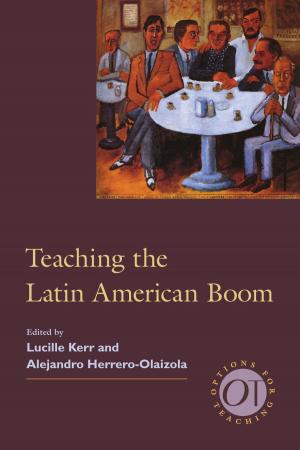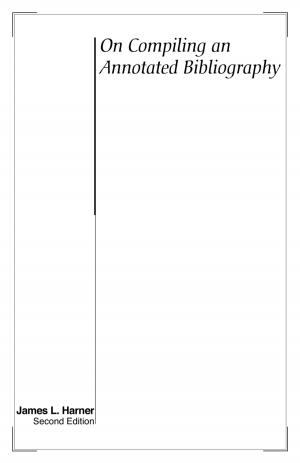Approaches to Teaching Baudelaire's Prose Poems
Fiction & Literature, Literary Theory & Criticism, French, European, Nonfiction, Reference & Language, Language Arts, Study & Teaching| Author: | ISBN: | 9781603292733 | |
| Publisher: | The Modern Language Association of America | Publication: | June 1, 2017 |
| Imprint: | The Modern Language Association of America | Language: | English |
| Author: | |
| ISBN: | 9781603292733 |
| Publisher: | The Modern Language Association of America |
| Publication: | June 1, 2017 |
| Imprint: | The Modern Language Association of America |
| Language: | English |
A prolific poet, art critic, essayist, and translator, Charles Baudelaire is best known for his volumes of verse (*Les Fleurs du Mal* [*Flowers of Evil*]) and prose poems (*Le Spleen de Paris* [*Paris Spleen*]). This volume explores his prose poems, which depict Paris during the Second Empire and offer compelling and fraught representations of urban expansion, social change, and modernity.
Part 1, "Materials," surveys the valuable resources available for teaching Baudelaire, including editions and translations of his oeuvre, historical accounts of his life and writing, scholarly works, and online databases. In Part 2, "Approaches," experienced instructors present strategies for teaching critical debates on Baudelaire's prose poems, addressing topics such as translation theory, literary genre, alterity, poetics, narrative theory, and ethics as well as the shifting social, economic, and political terrain of the nineteenth century in France and beyond. The essays offer interdisciplinary connections and outline traditional and fresh approaches for teaching Baudelaire's prose poems in a wide range of classroom contexts.
A prolific poet, art critic, essayist, and translator, Charles Baudelaire is best known for his volumes of verse (*Les Fleurs du Mal* [*Flowers of Evil*]) and prose poems (*Le Spleen de Paris* [*Paris Spleen*]). This volume explores his prose poems, which depict Paris during the Second Empire and offer compelling and fraught representations of urban expansion, social change, and modernity.
Part 1, "Materials," surveys the valuable resources available for teaching Baudelaire, including editions and translations of his oeuvre, historical accounts of his life and writing, scholarly works, and online databases. In Part 2, "Approaches," experienced instructors present strategies for teaching critical debates on Baudelaire's prose poems, addressing topics such as translation theory, literary genre, alterity, poetics, narrative theory, and ethics as well as the shifting social, economic, and political terrain of the nineteenth century in France and beyond. The essays offer interdisciplinary connections and outline traditional and fresh approaches for teaching Baudelaire's prose poems in a wide range of classroom contexts.















